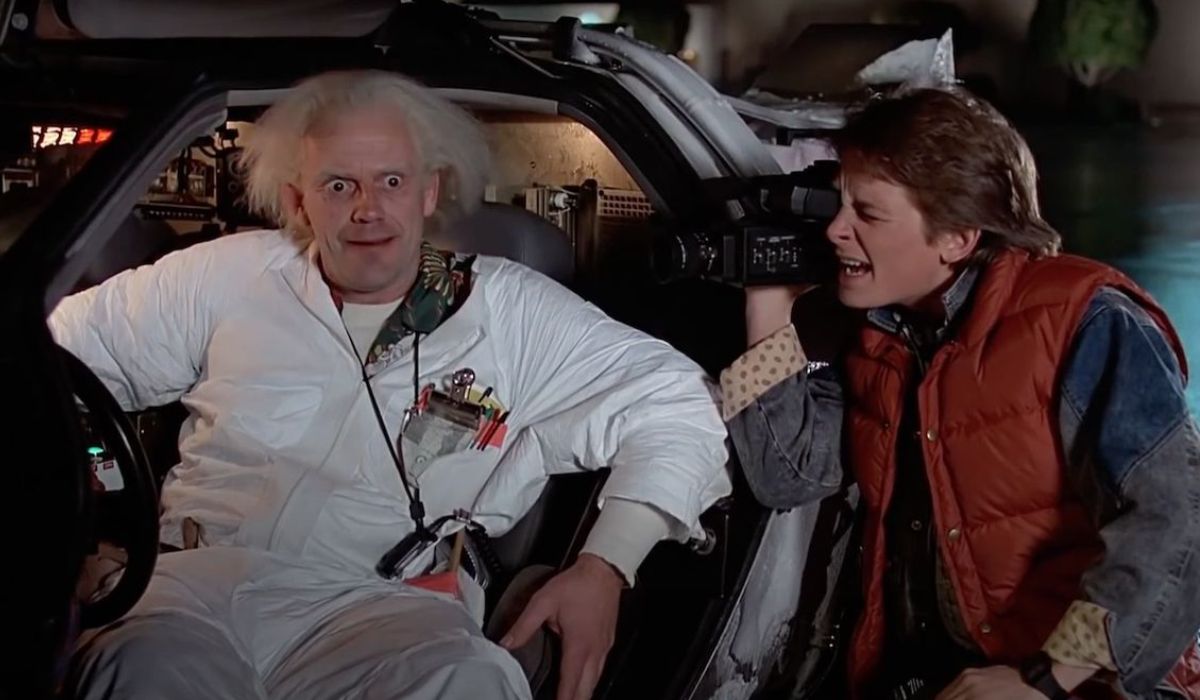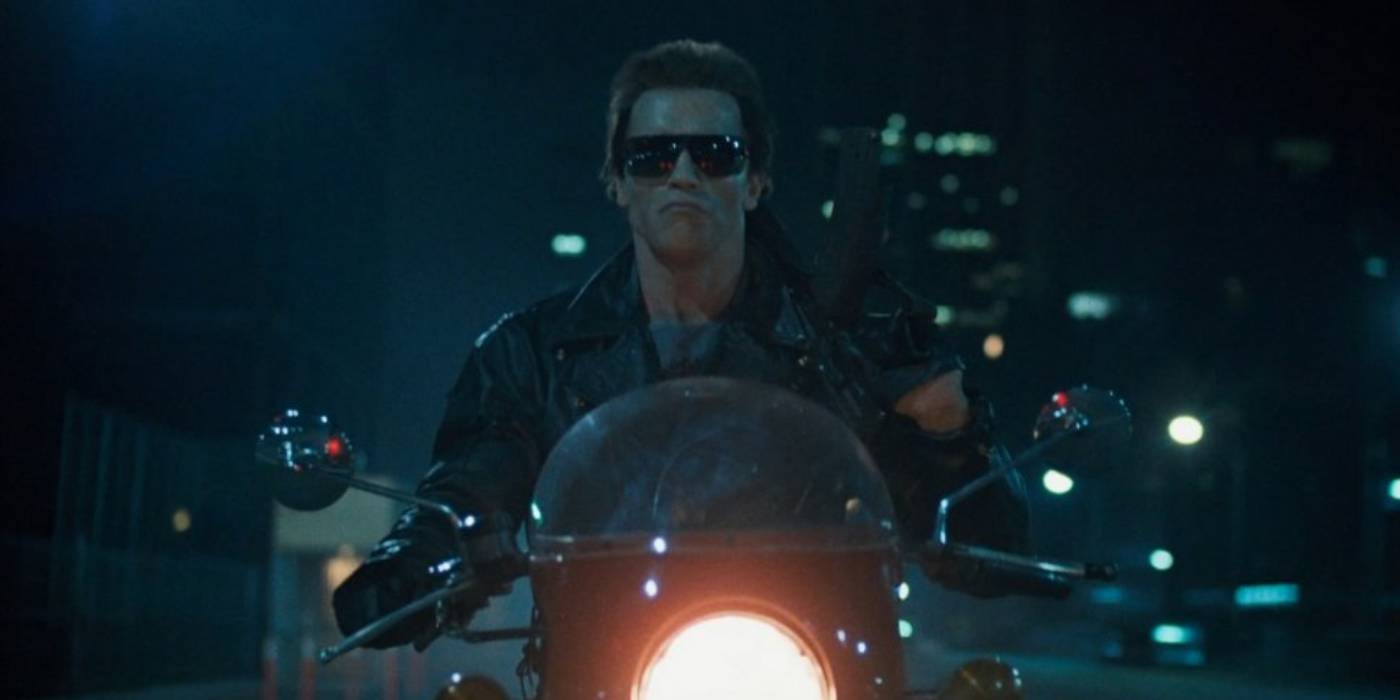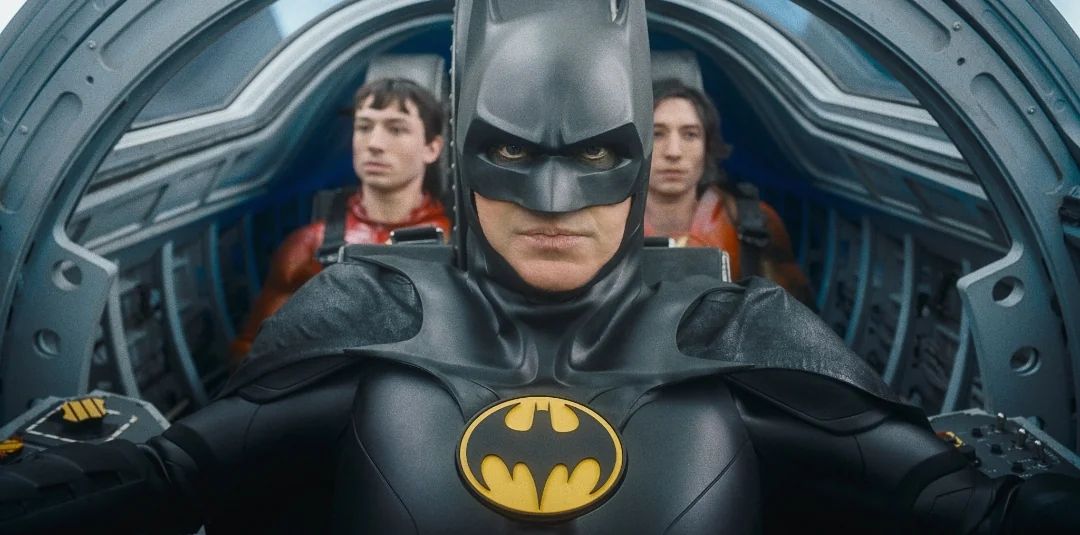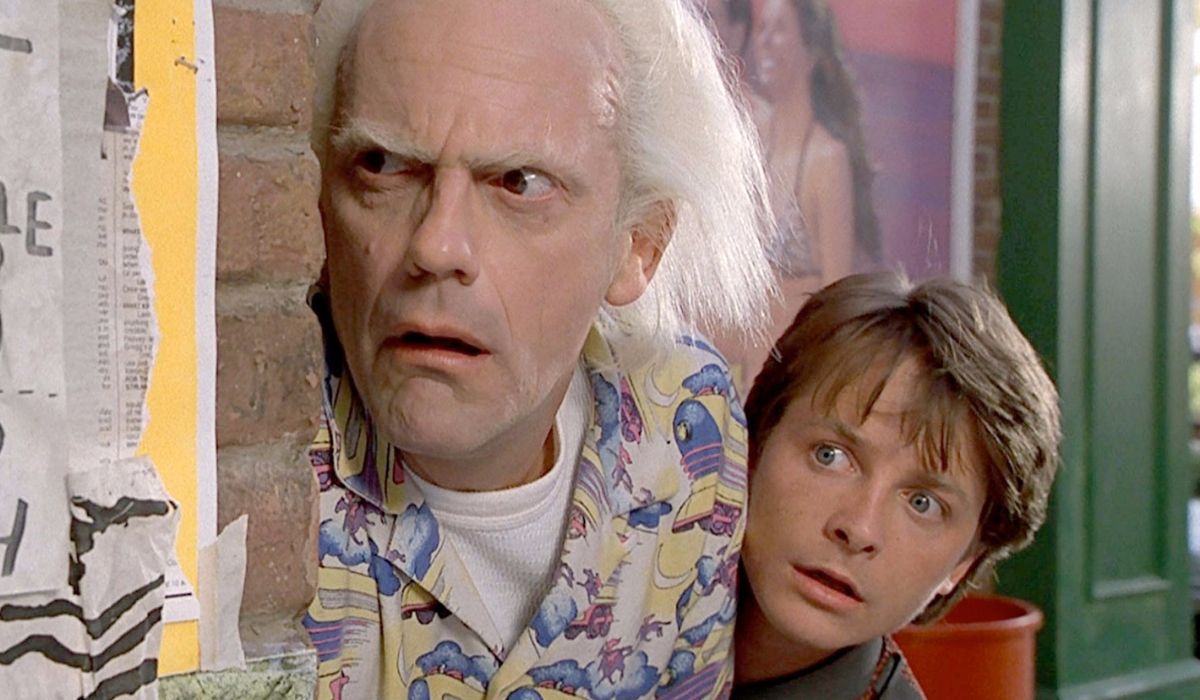
Time traveling is a popular theme in science fiction, often leading to mind-bending plots that can give you quite a headache to ponder upon. Imagine if we could leap into the past, alter one small detail, and watch as the future unfolds differently. On the other hand, imagine stepping into the future to catch a glimpse of what life might look like years or even centuries from now. These are the two fundamental questions that time-travel narratives pose, and since we haven’t discovered a way to actually travel through time in reality, writers and filmmakers have the creative freedom to explore and depict the potentials of time travel according to their imagination.
Unfortunately, like a two-sided blade, this concept of time travel is shrouded in theory more than reality. Since the intricacies of traveling through time remain mostly speculative, science fiction films are left to devise their own guidelines for how such journeys might unfold and what consequences could arise from stepping into either the past or the future. Here’s a list of ten captivating movies that delve into time-travel narratives, yet leave many unresolved and perhaps even unsolvable questions lingering.
1) Timecop

Jean-Claude Van Damme’s blockbuster film “Timecop,” which earned over $100 million, solidified him as the action star of the ’90s known for his spinning kicks. However, the movie’s time-travel mechanics might leave you bewildered. The story is set in 2004, where Time Enforcement Agent Max Walker (played by Van Damme) works to prevent Senator Aaron McComb (portrayed by Ron Silver) from exploiting time-travel technology to manipulate the past for his political gain.
As a pure sci-fi action movie enthusiast, Timecop offers numerous impressive fight sequences, stunts, and effects reminiscent of Terminator 2, keeping the audience captivated. However, these elements are meant to divert attention from intricate questions such as why only traveling into the past is allowed, how Timecops are propelled into the past using a mini-rocket and a compact device for return, and how multiple alternate timelines depicted in the movie function. Similarly, the 2003 direct-to-DVD sequel Timecop 2: The Berlin Decision maintains its puzzling time-travel logic but keeps the action flowing with Jason Scott Lee, known for his role in Dragon: The Bruce Lee Story, joining as a new Timecop with impressive combat skills.
2) Planet of the Apes (2001)

In 2001, Tim Burton offered a fresh take on the 1968 film “Planet of the Apes,” setting it off-world while preserving its intricate time-travel aspects and amplifying their confounding qualities. The story unfolds when astronaut Leo Davis (Mark Wahlberg), attempting to safeguard his space monkey companion Pericles from a celestial tempest, is hurled through time into a distant future. Here, he lands on a world governed by intelligent apes who subjugate humans. In the film’s dramatic finale, Pericles emerges from the same storm, leading Leo to believe that his return journey to Earth may be possible in time.
In my perspective as a cinema enthusiast, instead, the planet he lands on is governed by articulate apes, where the film’s menacing antagonist General Thade (Tim Roth) has somehow managed to return to Earth ahead of him and gained an Abraham Lincoln-like status among the simian populace. Even with advanced knowledge in time dilation and physics, Planet of the Apes remains a thought-provoking sci-fi movie that leaves one questioning reality at every turn.
3) Bill & Ted’s Excellent Adventure

In the delightfully silly science fiction comedy “Bill & Ted’s Excellent Adventure,” elements such as scientific precision and logic take a back seat, which is perfectly fine given the hilarious level of absurdity it delivers. This movie follows Bill (played by Alex Winter) and Ted (Keanu Reeves), two aspiring rock stars who are unexpectedly assigned a mission crucial for the preservation of the universe. Their music will eventually lead to Earth becoming a utopia powered by rock, with themselves being hailed as “the Great Ones” centuries into the future. However, it’s up to time-traveling guide Rufus (portrayed by George Carlin) to ensure that Bill and Ted pass their high school history classes, or else the peaceful future of Earth could be significantly disrupted.
In a simpler and more conversational manner, “Bill & Ted’s Excellent Adventure” breaks the rules of time travel much more frequently than most time-travel stories do. Questions about how Bill and Ted could pass or fail history class, or even travel through time using a phone booth, are quickly dismissed within seconds. Despite its illogical nature, “Bill & Ted’s Excellent Adventure” remains an excellent movie to watch.
4) Hot Tub Time Machine

Apparently, they’ve stumbled upon a sort of… time-traveling hot tub,” says Nick, breaking the fourth wall when he and his friends are mysteriously transported from 2010 to 1986 through a jacuzzi. The movie, titled Hot Tub Time Machine, is as straightforward as it gets about being just as absurd as Bill & Ted’s Excellent Adventure and significantly more explicit in its ’80s-inspired time-travel escapade.
In a simpler and more conversational manner: The logic behind time-travel in the movie ‘Hot Tub Time Machine’ seems inconsistent and unexplained. For instance, Chevy Chase’s character fixing the hot tub with supposed knowledge of time-travel is questionable, and the four main characters’ attempts to relive their 1986 ski trip should theoretically change the timeline significantly, yet nothing Lou (Rob Corddry) does seems to have a greater impact. Unlike many other time-travel films, ‘Hot Tub Time Machine’ intentionally avoids making sense at all.
5) The Terminator

The Terminator series revolves around a primary idea: In the future, the artificial intelligence known as Skynet wages war against humans, sending an advanced cyborg assassin called a Terminator back in time to eliminate John Connor before he becomes a key figure in human resistance against Skynet. The original 1984 film, The Terminator, is a sci-fi and action classic, but its time-travel plot can raise complex questions if you ponder it carefully.
For instance, how do these machines determine if they’ve accomplished their goal since traveling through time only goes forward in a post-apocalyptic world? What specifically is the T-800 model supposed to achieve once it finishes its task? Furthermore, the debate over whether the past can be changed at all or not has always been present within the series, ever since Kyle Reese (Michael Biehn) was revealed as John’s future father in The Terminator. Although this franchise raises numerous unresolved time travel questions, it remains a significant and influential contribution to the science fiction genre’s exploration of time travel themes.
6) Avengers: Endgame

Endgame” served as the grand finale of Marvel Studios’ ongoing Infinity Saga, yet it left many questions about time travel unanswered. As the Avengers ventured back in time to recover the Infinity Stones and reverse Thanos’ (Josh Brolin) catastrophic snap, the Hulk (Mark Ruffalo), now intelligent, provided a hasty and somewhat implausible explanation about time travel in movies, claiming that “if you go to the past, that past becomes your new future. Consequently, your previous present transforms into the past, which can no longer be altered by your new future.
Apart from its record-breaking box office earnings, widespread cultural impact, and spectacular finale fight against Thanos, the movie “Avengers: Endgame” excels in numerous aspects, but clarifying the intricacies of time travel is not among them. Specifically, the last scene where older Steve Rogers (Chris Evans) spends his missed years with Peggy Carter (Hayley Atwell) doesn’t bother to clarify whether this alternate life he created after returning the Infinity Stones didn’t cause a time paradox.
7) X-Men: Days of Future Past

Five years before the Marvel Cinematic Universe delved into time travel, the Fox universe had already started playing with it in 2014’s “X-Men: Days of Future Past”. This film was inspired by a famous Marvel Comics story, where Wolverine (Hugh Jackman) is sent back to 1973. His mission is to stop Mystique (Jennifer Lawrence) from killing scientist Bolivar Trask (Peter Dinklage), an act that would trigger the creation of the Sentinel army and the doom of both humans and mutants alike.
The continuity of the X-Men series became tangled starting from 2011’s X-Men: First Class, and Days of Future Past introduces a complex web of time travel that raises numerous questions. One major question is how and why the timeline resets just as the X-Men are about to lose the battle against the Sentinels. This leaves us wondering exactly how changes made in the past affect the future. While X-Men: Days of Future Past is widely considered one of the best X-Men films, its time travel mechanics are as flexible and puzzling as any other time travel story.
8) The Flash

2023’s “The Flash” film, inspired by the well-known DC Comics saga “Flashpoint”, focuses on Barry Allen (played by Ezra Miller). In the story, Barry journeys back in time to prevent the killing of his mother, Nora (portrayed by Maribel Verdú). However, his actions result in an altered reality where General Zod (Michael Shannon) returns to Earth with the intention of transforming it. An elderly Bruce Wayne, played by Michael Keaton, explains that time travel leads to a new future and past, creating a complex network of realities much like untangling a bowl of spaghetti in a multiverse.
As a film enthusiast, I must confess that The Flash’s intricate tale of time travel and the multiverse has left me pondering the connection between Keaton’s timeline and the DCEU. Is it possible that his Batman has seamlessly merged with the DCEU, or is the alteration of the timeline merely a swap of characters from different dimensions? The movie’s conclusion seems to hint at this latter scenario, as George Clooney’s Bruce Wayne makes an appearance.
In the film, Keaton’s Batman himself labels the multiverse as a “hot mess” and a “crapshoot,” which rings true in light of The Flash’s captivating yet complex storyline that combines time travel and the multiverse.
9) Austin Powers: The Spy Who Shagged Me

1999’s “Austin Powers: The Spy Who Shagged Me” offers a fascinating exploration of time travel for those who appreciate intricate details, despite its somewhat crude and embarrassing humor. The climax of the film stands out, featuring Austin Powers (played by Mike Myers) traveling to 1969 to recover his stolen powers. This is especially interesting because the ending involves “Austin Ten Minutes From Now” rescuing both Austin from the past and Felicity Shagwell (Heather Graham), all while thwarting Dr. Evil (again, Mike Myers) in a moon lair that’s about to explode – a scenario that presents a genuine time paradox.
How does it work when two Austin Powers from different time periods can exist simultaneously, given that the death of one Austin could potentially threaten the life of the other Austin who is just minutes away in time? This conundrum is further complicated by Scott Evil’s suggestion that he might eliminate Austin permanently by killing him in the past instead of merely taking his mojo. Both Austin and Basil Exposition acknowledge that contemplating such questions spoils the enjoyment of time-travel tales like “Austin Powers: The Spy Who Shagged Me”.
10) Back to the Future Part II

By October 26th, 2015, it was clear to all that the glitzy, forward-looking tech in Back to the Future Part II had failed to materialize as comically predicted. Yet, Marty McFly’s (Michael J. Fox) and Doc Brown’s (Christopher Lloyd) time-traveling adventure was filled with time paradoxes and unresolved questions from the moment Biff Tannen (Thomas F. Wilson) grabbed a future Almanac.
In simpler terms, when Marty and Biff alter the timeline in Back to the Future Part II, does the initial change made by Marty in the original timeline still exist after Marty undoes Biff’s changes, or are they also erased? Furthermore, if Biff indeed creates an alternate 1985 as Dr. Brown suggests, does this mean that they create another alternate 1955 when they go back again to fix Biff’s alterations? Back to the Future is known for its exceptional time-travel sci-fi storytelling, but it’s in Back to the Future Part II where the movie’s unresolved time-travel paradoxes are most apparent.
Read More
- How to Get the Bloodfeather Set in Enshrouded
- 4 TV Shows To Watch While You Wait for Wednesday Season 3
- The Pitt Season 2, Episode 7 Recap: Abbot’s Return To PTMC Shakes Things Up
- Gold Rate Forecast
- Every Targaryen Death in Game of Thrones, House of the Dragon & AKOTSK, Ranked
- Best Thanos Comics (September 2025)
- Goat 2 Release Date Estimate, News & Updates
- Best Controller Settings for ARC Raiders
- Where Winds Meet: How To Defeat Shadow Puppeteer (Boss Guide)
- One of the Best EA Games Ever Is Now Less Than $2 for a Limited Time
2025-07-20 20:11